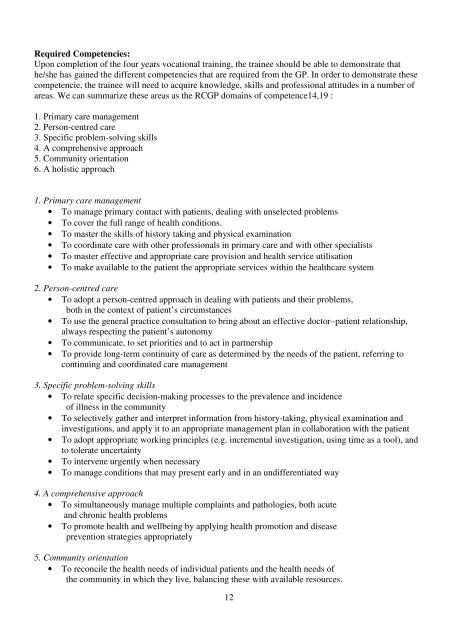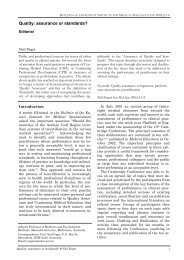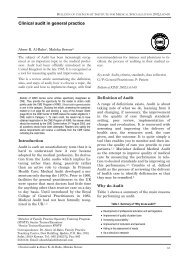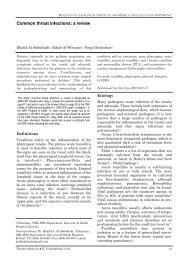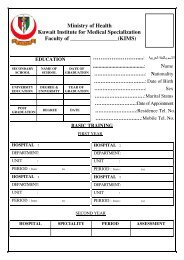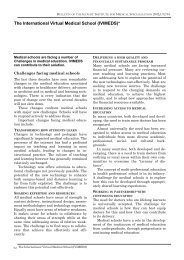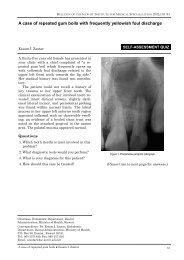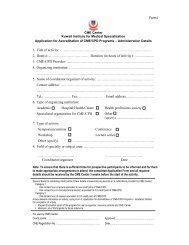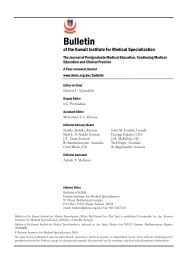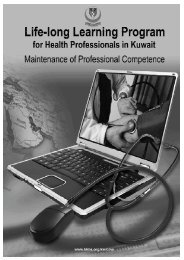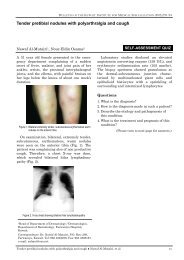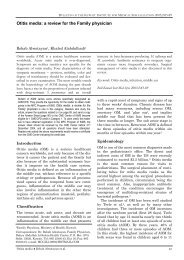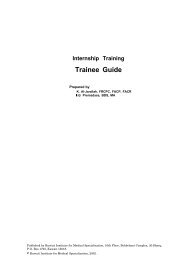Family Practice Program - Kuwait Institute for Medical Specialization
Family Practice Program - Kuwait Institute for Medical Specialization
Family Practice Program - Kuwait Institute for Medical Specialization
You also want an ePaper? Increase the reach of your titles
YUMPU automatically turns print PDFs into web optimized ePapers that Google loves.
Required Competencies:<br />
Upon completion of the four years vocational training, the trainee should be able to demonstrate that<br />
he/she has gained the different competencies that are required from the GP. In order to demonstrate these<br />
competencie, the trainee will need to acquire knowledge, skills and professional attitudes in a number of<br />
areas. We can summarize these areas as the RCGP domains of competence14,19 :<br />
1. Primary care management<br />
2. Person-centred care<br />
3. Specific problem-solving skills<br />
4. A comprehensive approach<br />
5. Community orientation<br />
6. A holistic approach<br />
1. Primary care management<br />
• To manage primary contact with patients, dealing with unselected problems<br />
• To cover the full range of health conditions.<br />
• To master the skills of history taking and physical examination<br />
• To coordinate care with other professionals in primary care and with other specialists<br />
• To master effective and appropriate care provision and health service utilisation<br />
• To make available to the patient the appropriate services within the healthcare system<br />
2. Person-centred care<br />
• To adopt a person-centred approach in dealing with patients and their problems,<br />
both in the context of patient’s circumstances<br />
• To use the general practice consultation to bring about an effective doctor–patient relationship,<br />
always respecting the patient’s autonomy<br />
• To communicate, to set priorities and to act in partnership<br />
• To provide long-term continuity of care as determined by the needs of the patient, referring to<br />
continuing and coordinated care management<br />
3. Specific problem-solving skills<br />
• To relate specific decision-making processes to the prevalence and incidence<br />
of illness in the community<br />
• To selectively gather and interpret in<strong>for</strong>mation from history-taking, physical examination and<br />
investigations, and apply it to an appropriate management plan in collaboration with the patient<br />
• To adopt appropriate working principles (e.g. incremental investigation, using time as a tool), and<br />
to tolerate uncertainty<br />
• To intervene urgently when necessary<br />
• To manage conditions that may present early and in an undifferentiated way<br />
4. A comprehensive approach<br />
• To simultaneously manage multiple complaints and pathologies, both acute<br />
and chronic health problems<br />
• To promote health and wellbeing by applying health promotion and disease<br />
prevention strategies appropriately<br />
5. Community orientation<br />
• To reconcile the health needs of individual patients and the health needs of<br />
the community in which they live, balancing these with available resources.<br />
12


